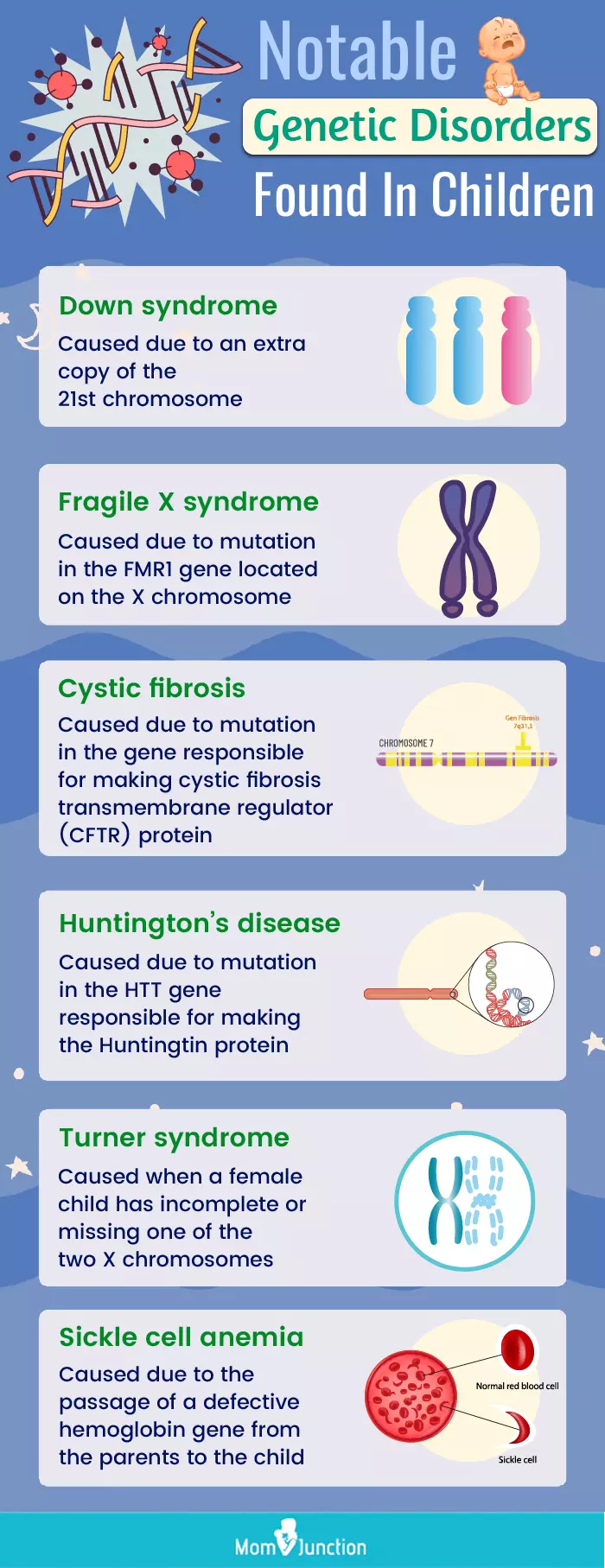Genetic disorders treatable before birth represent a groundbreaking advancement in prenatal care, offering hope and potential solutions for families facing the daunting realities of genetic conditions. Recent studies indicate that nearly 300 genetic disorders can now be identified and treated during pregnancy or shortly after birth, opening doors to innovative early intervention strategies. With the help of prenatal genetic screening and genomic sequencing, healthcare providers can detect these treatable fetal conditions much earlier, leading to timely and effective management. As the landscape of prenatal care advances, parents are increasingly empowered with knowledge and options that can improve health outcomes for their unborn children. Early intervention in pregnancy is becoming not just a possibility but a necessity in reshaping the future of pediatric health.
The field of prenatal medicine has made remarkable strides in identifying and managing genetic anomalies that can be addressed before birth. These treatable fetal conditions encompass a range of disorders that can be effectively treated through interventions initiated during pregnancy or immediately after delivery. Through advancements in prenatal genetic screening and genomic analysis, parents now have access to critical information that enables them to make informed decisions regarding their unborn children’s health. Such proactive measures not only mitigate risks associated with certain genetic disorders but also highlight the importance of early intervention techniques that can significantly alter disease progression. The evolving landscape of prenatal care emphasizes the need for comprehensive support systems that guide families through these complex choices and care pathways.
The Necessity of Prenatal Genetic Screening
Prenatal genetic screening has emerged as a critical component of modern obstetrics, aimed at identifying genetic disorders in the fetus before birth. This proactive approach allows for the early detection of treatable fetal conditions, enabling parents to make informed decisions regarding their pregnancy and the potential management of any identified issues. Increased awareness and advancements in technology have led to refined screening methods, enhancing the ability to detect genetic anomalies sooner and more accurately than ever before.
The benefits of prenatal genetic screening extend beyond mere detection; they also encompass the possible interventions that can be initiated based on the information gathered. By establishing a robust framework for prenatal screenings, healthcare providers can now devise personalized care plans that address identified risks. As a result, this practice not only facilitates better health outcomes for the newborn but also alleviates anxiety among expectant parents, who can prepare for potential challenges ahead.
Frequently Asked Questions
What are genetic disorders treatable before birth?
Genetic disorders treatable before birth include conditions identified through prenatal genetic screening that can be managed during pregnancy or immediately after birth. Recent studies have identified nearly 300 conditions that allow for early intervention in pregnancy, improving outcomes for the fetus when diagnosed timely.
How do treatable fetal conditions impact prenatal care?
Treatable fetal conditions significantly impact prenatal care by expanding the options available to families. With advancements in prenatal genetic screening and early detection, healthcare providers can offer interventions during pregnancy that may change disease trajectories and reduce morbidity.
What role does genomic sequencing play in prenatal genetic screening?
Genomic sequencing plays a vital role in prenatal genetic screening by identifying genetic abnormalities and potential treatable conditions. It helps healthcare providers understand the genetic basis of ultrasound abnormalities and uncover treatable fetal conditions, enhancing early intervention strategies.
What are the benefits of early intervention in pregnancy for genetic disorders?
Early intervention in pregnancy for genetic disorders can lead to improved health outcomes for the fetus. By detecting and treating conditions promptly, healthcare providers can reduce the risk of severe complications and facilitate better management strategies, making it possible to prevent irreversible harm.
How can prenatal care advancements help manage treatable fetal conditions?
Prenatal care advancements, such as improved genetic screening and the identification of treatable fetal conditions, enable healthcare professionals to implement early interventions during pregnancy. This proactive approach contributes to better health outcomes for both the baby and the mother, highlighting the importance of timely and accurate diagnosis.
| Key Points | Details |
|---|---|
| Study Overview | Research identifies nearly 300 genetic disorders treatable during pregnancy or shortly after birth. |
| Significance | Timely detection of these disorders may reduce morbidity and allow for early interventions. |
| Research Conducted By | Researchers from Harvard Medical School, Mass General Brigham, and Duke University School of Medicine. |
| Use of Technology | Genomic sequencing helps identify genetic disorders through tests and family history. |
| Treatable Conditions | 296 identified genetic disorders with varying degrees of treatment options available. |
| Goal of Research | To empower families with information to make informed decisions regarding prenatal interventions. |
| Challenges Ahead | Ethical considerations regarding overwhelming information and the emotional impact on families. |
Summary
Genetic disorders treatable before birth are a vital area of research that can significantly impact prenatal care. By identifying nearly 300 genetic conditions that can be addressed during pregnancy or shortly after birth, researchers have opened up new avenues for early intervention. This proactive approach not only aims to improve outcomes for affected fetuses and infants but also empowers families with essential information, offering them choices during a critical time. However, challenges remain, particularly in addressing the ethical considerations and emotional responses of families navigating this complex health information.
